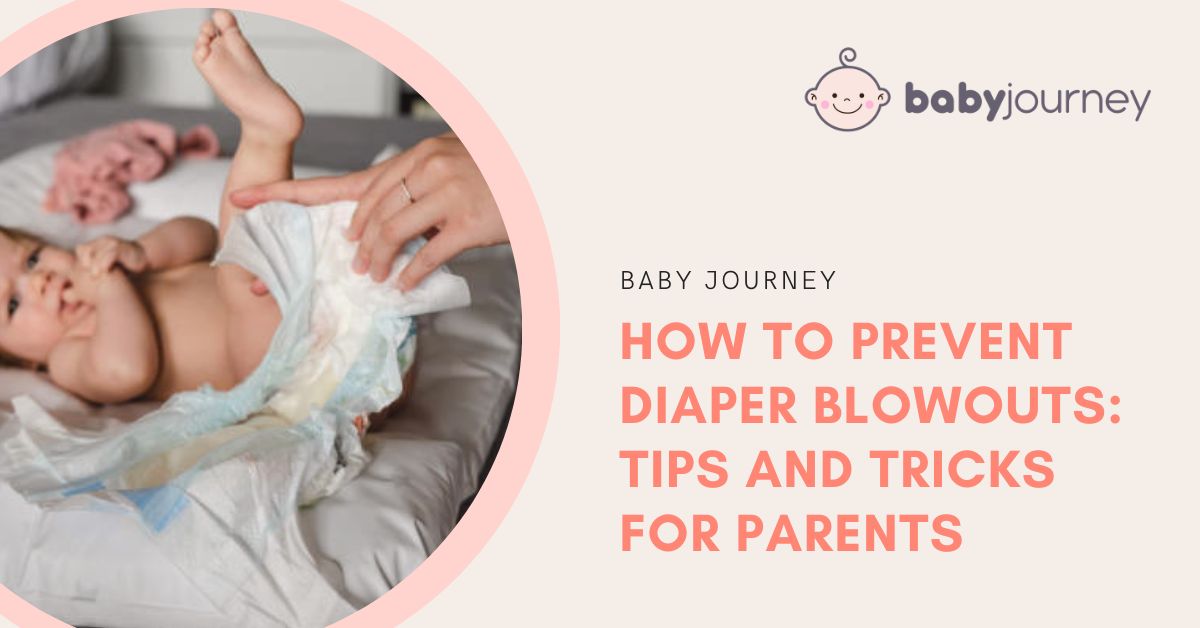How to Prevent Diaper Blowouts are a common occurrence for parents with young babies. They can be messy, frustrating, and time-consuming to clean up. However, there are several steps that parents can take to prevent diaper blowouts from happening in the first place.
One of the most important things to consider is the fit of the diaper. A diaper that is too loose or too tight can increase the likelihood of a blowout. By tracing their fingers over the edges and ensuring there are no gaps, parents should make sure the diaper fits securely around the waist and thighs. If a diaper is excessively loose, excrement and pee may leak through the openings before being absorbed.
Another important factor to consider is the frequency of diaper changes. A full diaper can lead to blowouts, so it’s essential to change your baby’s diaper frequently, at least every two hours or as needed. Additionally, investing in a good diaper bag that has plenty of room for extra diapers and wipes can help ensure that parents are always prepared for a diaper change. By taking these simple steps, parents can significantly reduce the likelihood of diaper blowouts and make life with a young baby a little bit easier.
Understanding Diaper Blowouts
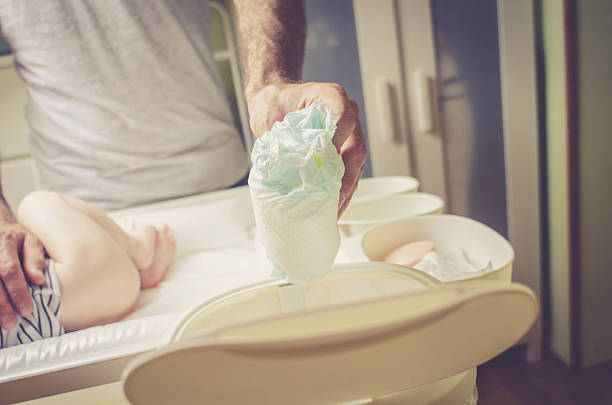
What are Diaper Blowouts?
A diaper blowout is when baby poop or urine leaks out of the diaper, usually because it’s not fitted correctly or the baby diaper is full. It’s a common occurrence for parents and can be quite messy and stressful to deal with. When a blowout happens, poop can leak out of the diaper and cover the baby’s back, legs, and sometimes even their belly. It can also cover any clothing they’re wearing, which means parents have to change their baby’s dirty clothes, clean them up, and sometimes even give them a bath.
Why Do Diaper Blowouts Happen?
There are several reasons why diaper blowouts happen. One of the most common reasons is that the diaper is not fitted correctly. If the diaper is too small or too big, it can cause leaks. It’s important to choose the right size diaper for your baby.Diapers fit every baby differently since babies come in a wide range of sizes and shapes, much like clothing. Parents should check the diaper’s fit regularly to ensure it’s snug but not too tight.
Another reason why diaper blowouts happen is that the diaper is too full. If a baby’s diaper is too full, it can lead baby blowout or to leaks. Parents should change their baby’s diaper regularly, especially after feedings or when the baby has a bowel movement. It’s also important to make sure the diaper is securely fastened to prevent leaks.
Lastly, diaper blowouts can happen when the baby’s body is in certain positions, such as when they’re sitting up or in a car seat. In these positions, the poop can push against the back of the diaper and cause a blowout. Parents should be mindful of their baby’s position and make sure they change their diaper before putting them in a car seat or other position that could cause a blowout.
Overall, understanding why diaper blowouts happen can help parents prevent them from happening in the first place. By choosing the right size diaper, changing their baby’s diaper regularly, and being mindful of their baby’s position, parents can reduce the likelihood of a messy and stressful diaper blowout.
Choosing the Right Diaper
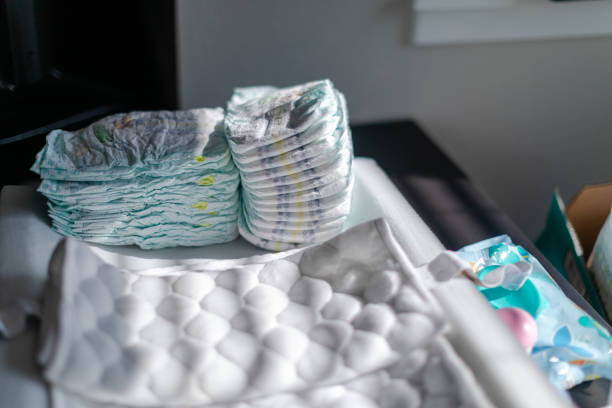
When it comes to preventing diaper blowouts, choosing the right diaper is crucial. Here are some factors to consider:
Size Matters
One of the most important factors to consider when choosing a diaper is the size. A diaper that is too small will not provide enough coverage, while a cloth diaper cover that is too big can cause leaks and blowouts. It is essential to choose a diaper size that fits your baby snugly without being too tight.
Different diaper brands have different size charts, so it is essential to refer to the manufacturer’s size chart to ensure the right fit. As babies grow, their diaper size may change, so it is important to keep an eye on their weight and adjust accordingly.
Material
The material of the diaper is another important factor to consider. Diapers made from high-quality materials are less likely to leak or cause blowouts. Look for diapers made from breathable materials that allow air to circulate, reducing the risk of diaper rash.
Some diapers are made from synthetic materials, while others are made from natural materials like cotton. Natural materials are usually more breathable and gentle on a baby’s skin than disposable diapers, but they may be less absorbent than synthetic materials. It is essential to choose a diaper that works best for your baby’s individual needs.
Quality
The quality of the diaper is also an important consideration. High-quality diapers are less likely to rip or tear, which can cause leaks and blowouts. Look for diapers with reinforced leg cuffs and waistbands that provide a secure fit.
It is also important to choose a diaper brand that has a good reputation for quality. Reading reviews from other parents can be helpful in determining which brands are known for producing high-quality diapers.
Overall, choosing the right diaper is essential in preventing diaper blowouts. By considering factors like size, material, and quality, parents can ensure that their baby stays comfortable and dry, while avoiding messy and frustrating blowouts.
Correct Diaper Application
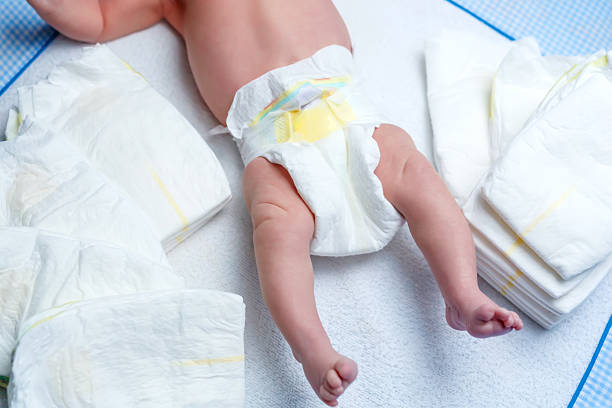
Proper diaper application is crucial in preventing diaper blowouts. Parents should ensure that they are using the right size and style of diaper for their baby. This section will cover two essential sub-sections of baby diaper and application: Proper Fit and Securing the Diaper.
Proper Fit
The proper fit of a diaper is key to preventing leaks and blowouts. A diaper that is too small can cause leaks and discomfort, while a diaper that is too big can cause gaps where waste can escape. Parents should ensure that they are using the correct size of disposable diaper for their baby’s weight and age.
To check if a diaper fits properly, parents can use the one-finger rule. They should be able to fit one finger under both the waist elastic and the leg cuff of the diaper. If they can barely fit one finger, the diaper should be capable of containing all but the most ridiculous diaper blowouts. Loose diapers are obvious to spot, but tighter ones can be uncomfortable for babies and can cause red marks or leaks.
Securing the Diaper
After ensuring that the baby’s diaper fits properly on, parents should secure the diaper properly. The diaper should be snug but not too tight. The waistband should be at the baby’s waistline, and the leg cuffs should be pulled out to create a barrier against leaks.
When securing the diaper, parents should make sure that the tabs are fastened securely. The tabs should be fastened evenly and snugly, but not too tight. If the tabs are too tight, they can cause discomfort and red marks on the baby’s skin. If they are too loose, they can cause gaps in cloth diaper covers, where waste can escape.
In conclusion, proper diaper application is crucial in preventing diaper blowouts. Parents should ensure that they are using the right size and style of diaper for their baby, and that the diaper is snug but not too tight. By following these simple steps, parents can prevent diaper blowouts and keep overnight diapers for their baby clean and comfortable.
Regular Diaper Checks
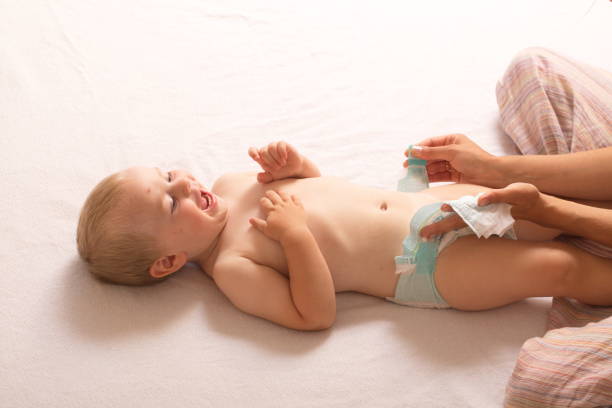
One of the most important steps in preventing diaper blowouts is performing regular diaper checks. Parents should inspect their baby’s diaper frequently to ensure that it is not too loose or too tight. A well-fitting diaper is key to preventing leaks and baby diaper blowouts too.
When checking the diaper, parents should make sure that it is snug around the waist and legs. They can do this by inserting one finger between the diaper and the baby’s skin. If the diaper is too loose, it may leak or a baby diaper blowout it out. If it is too tight, it may cause discomfort and leave marks on the baby’s skin.
Parents should also check the diaper’s leg cuffs. These cuffs should be pulled out to form a barrier against leaks. If the cuffs are tucked inside wet diaper, they can cause leakage and blowouts.
Another aspect to consider is the diaper’s absorbency. Parents should choose a diaper that is appropriate for their baby’s age and size. A diaper that is too small may not be absorbent enough, while a diaper that is too big may cause leaks and blowouts.
In summary, performing regular diaper checks is crucial in preventing diaper blowouts. Parents should ensure that the diaper is snug around the waist and legs, that the leg cuffs are pulled out, and that the diaper is appropriately sized for their baby. By following these steps, parents can help keep their baby dry and comfortable, and avoid messy diaper blowouts.
Proper Feeding Practices
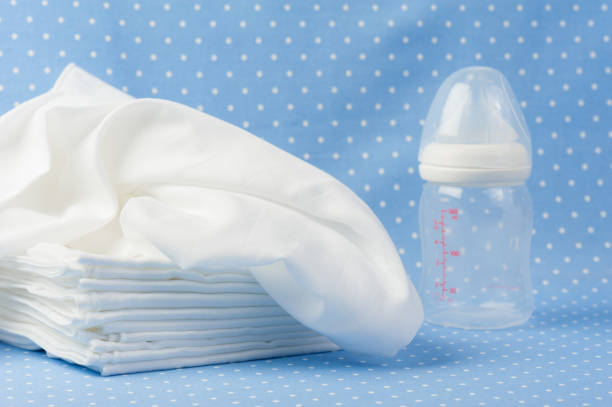
Proper feeding practices can play a crucial role in preventing diaper blowouts. Parents should consider diet and feeding schedule to avoid any digestive issues that can cause blowouts.
Diet Considerations
Breast milk is the best option for newborns, as it is easily digestible and provides all the necessary nutrients. However, if the baby is formula-fed, parents should choose a formula that is gentle on the baby’s stomach. Some babies may be sensitive to certain proteins or ingredients in the formula, causing digestive issues that can lead to blowouts.
As the baby starts eating solid foods, parents should introduce new foods gradually, one at a time, to identify any food sensitivities. Fiber-rich foods like fruits, vegetables, and whole grains can help regulate bowel movements and prevent constipation, which can cause blowouts. On the other hand, high-fat and greasy foods can lead to loose stools and diarrhea, increasing the risk of blowouts.
Feeding Schedule
Establishing a consistent feeding schedule can also help prevent diaper blowouts. Parents should feed their babies on demand, which means feeding them when they show signs of hunger, such as rooting, sucking, or crying. Overfeeding can cause the baby to have loose stools, increasing the risk of blowouts.
Parents should also ensure that the baby is burped properly after each feeding to prevent gas buildup, which can cause discomfort and lead to blowouts. Additionally, parents should avoid feeding the baby right before bedtime, as this can cause the baby to have a bowel movement during the night, leading to a blowout.
In summary, parents can prevent diaper blowouts by considering their baby’s diet and feeding schedule. Breast milk or gentle formula, fiber-rich foods, and a consistent feeding schedule can help regulate bowel movements and prevent blowouts.
Conclusion
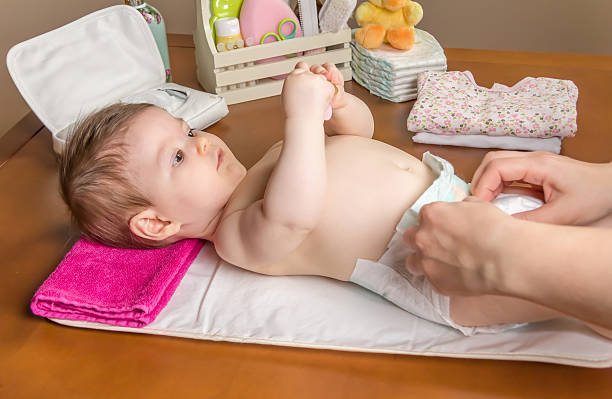
Preventing diaper blowouts is a top priority for parents and caregivers. By following the tips and tricks outlined in this article, parents can help reduce the likelihood of diaper blowouts and make diaper changes less stressful for both themselves and their babies.
First and foremost, parents should ensure that they are using the correct diaper size for their baby. A diaper that is too small or a diaper cover is too large can lead to leaks and blowouts. Additionally, parents should make sure that the diaper fits snugly around the baby’s legs, using diaper cuffs if necessary to create a tight seal.
Another important factor in preventing diaper blowouts is proper diapering technique. Parents should take care to position the diaper correctly and avoid tucking the leg cuffs inwards, which can increase the risk of blowouts. It’s also a good idea to check the diaper frequently and change it as soon as it becomes soiled.
Finally, parents can take steps to reduce the likelihood of blowouts by paying attention to their baby’s diet. A diet that is high in fiber can help promote regular bowel movements and reduce the risk of constipation, which can lead to blowouts. Additionally, parents should be aware of any foods that may cause their baby to have loose stools and avoid them if possible.
Overall, preventing diaper blowouts requires a combination of proper diapering technique, careful attention to diaper fit, and a healthy diet. By following these tips, parents can help keep their babies clean, comfortable, and happy.
Frequently Asked Questions
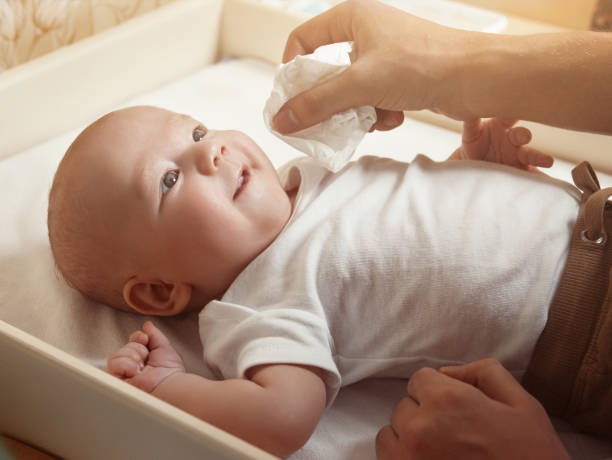
How can I prevent my baby’s poop from leaking out the back of their diaper?
To prevent poop from leaking out the back of your baby’s diaper, make sure the diaper is snug around the legs and your baby’s waist. Also, ensure that the diaper is pulled up high enough in the back to cover your baby’s bottom adequately. If the diaper is too loose, it can cause gaps, which can lead to leaks.
What are some effective ways to prevent diaper blowouts?
Some effective ways to prevent diaper blowouts include making sure the diaper is the right size for your baby, ensuring that the diaper is snugly fitted around your baby’s legs, and using diaper cuffs to create a tight seal the cloth diaper around your baby’s legs. Additionally, you can try changing your baby’s diaper more frequently, especially if your baby is prone to blowouts.
Are there any specific diaper brands that are better at preventing blowouts?
While some diaper brands may claim to be better at preventing blowouts, the truth is that it ultimately comes down to finding the right diaper size and fit for your baby. It’s best to experiment with different diaper brands and sizes until you find one that works well for your baby.
What can I do to keep my baby’s diaper from leaking out the sides?
To prevent diaper leaks from the sides, make sure the diaper is snugly fitted around your baby’s legs. You can also try using diaper cuffs to create a tight seal with cloth diapers around your baby’s legs, which can help prevent leaks.
Is it normal for babies to have frequent blowouts, or could it be a sign that the diaper is too small?
While occasional blowouts can be normal, frequent blowouts could be a sign that the baby wipes diaper is too small or not fitted correctly. If you’re experiencing frequent blowouts, try experimenting with different diaper sizes and fits until you find one that works well for your baby.
At what age do babies typically have the most blowouts?
Babies typically have the most blowouts during their first few months of life when they are still adjusting to their digestive system. As their digestive system matures, blowouts should become less frequent.
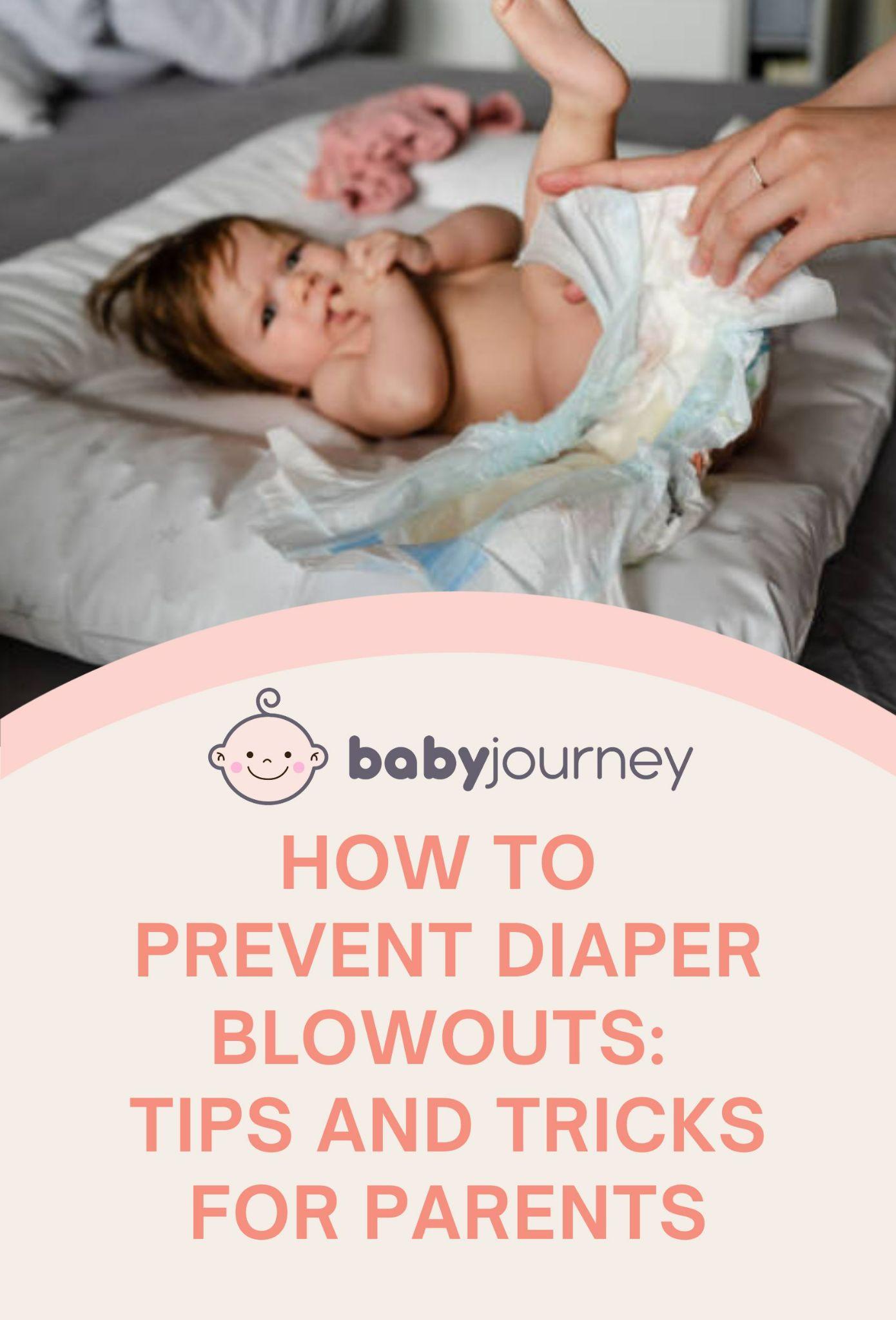

 PARENTING TIPS
PARENTING TIPS PREGNANCY
PREGNANCY BABY CARE
BABY CARE TODDLERS
TODDLERS TEENS
TEENS HEALTH CARE
HEALTH CARE ACTIVITIES & CRAFTS
ACTIVITIES & CRAFTS